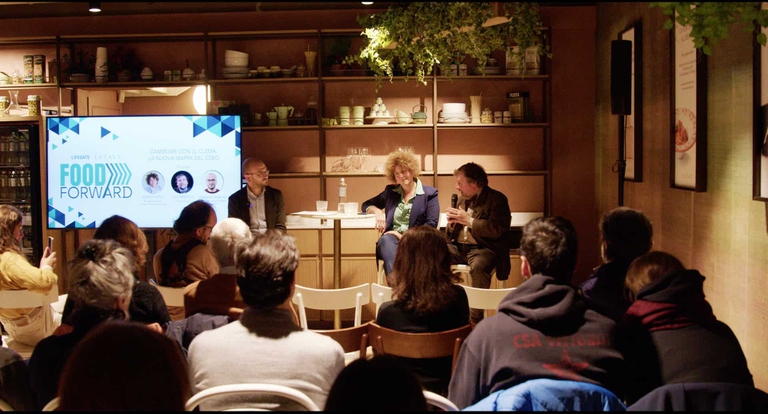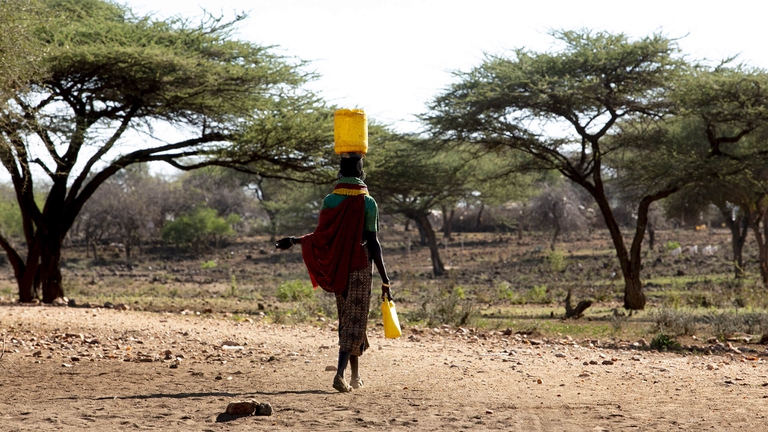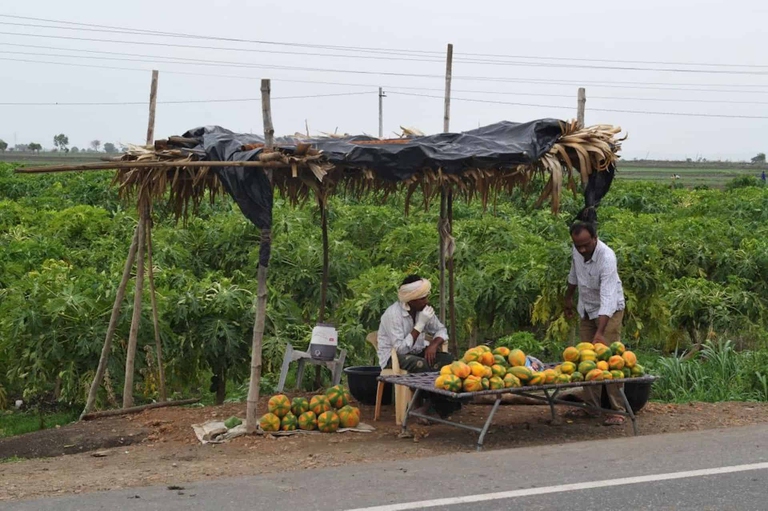https://www.lifegate.it/food-forward-agricoltura-clima-mappa-cibo
- |
- Agriculture is doubly linked to climate change:he is responsible for them and, at the same time, suffers them.
- High temperatures and extreme events move crops geographically and, in the poorest areas, force populations to migrate.
- Experts Luca Mercalli and Sara Roversi talk about the limit not to be exceeded and the possible adaptation and resilience solutions.
THE climate changes they are outlining a new geography of food:the'rising temperatures and the increase of extreme climate events they force them crops to "migrate" and, with them, entire populations.The issue was discussed during the November 12 event entitled “Changing with the climate:the new food map” by Food Forward, the meeting program organized by LifeGate and Eataly dedicated to the future of food.

In the renovated space of Eataly Emerald in Milan, the director of LifeGate Thomas Perrone conducted the in-depth study on the topic together with Luca Mercalli, climatologist and scientific communicator, president of the Italian Meteorological Society and founder of the meteorology magazine "Nimbus", and Sara Roversi, entrepreneur and founder of the Future Food Institute.
Mercalli:“Beyond 2 degrees we will enter unknown territory”
“Cop29 is taking place in Baku right now – began Mercalli – this means that we have been saying for 29 years that we must do something against climate change.Instead, 2024 will likely be the first year we exceed the 1.5 degree global temperature threshold.There is no hope of reversing, but it is essential to respect the second established threshold, that of 2 degrees by the end of the century.Beyond this temperature we would, in fact, enter unknown territory with a serious risk for humanity.The more temperatures rise, the more extreme events become more frequent:we have seen it recently with the floods in Emilia Romagna, the drought in Sicily, the Dana in Valencia, the hurricanes in Florida, but all this is happening with the total disinterest of politics and society".
The adaptation of agriculture to climate change, possible up to a certain point
What happens to agriculture in this context?The sector is responsible for 30 percent of global anthropogenic emissions, but it is also among the first victims of climate change:“In Italy, for example, the vineyards are moving to the northern slopes, the more shaded ones, or are rising in altitude;avocados have started to be grown in Sicily,” explained the climatologist.“Geographical shifts, the introduction of new cultivars or the rediscovery of ancient ones are the solutions we have at the moment, but beyond a certain climatic limit there will no longer be the possibility of adaptation, the elastic will break at a certain point.The main problem is that in certain regions of the world, crop failures due to extreme events deprive entire populations of the ability to eat.World hunger is growing with 733 million people suffering.And when you don't have food the geopolitical reaction can only be mass migration."

Roversi:“We need to change the cultural model and consider more solutions”
For Sara Roversi today's challenge is that of change the cultural model:“When I first started working on these issues, I spent years chasing technological solutions that were being developed around the world to address food systems problems.Then, I started looking at my home, at the Mediterranean diet, and I discovered that Cilento is a place that protects a third of the biodiversity of the Mediterranean, a place where regenerative agriculture has always been done, a place where people arrive clear-headed and active in old age.I understood that we had to learn from our roots and codify a model to adapt to different places and lifestyles.The alliance with science is fundamental, but before betting everything on technological solutions, such as cultivated meat, it is better to start from our culture by reflecting, for example, on the importance of eating less meat by choosing the time in which we eat, the one that is not intensively farmed".

The entrepreneur told of her trip to India, in Andhra Pradesh, where a process of conversion toregenerative agriculture has saved numerous farmers from poverty and health risks, reinvigorating an entire territory:“These farmers grow different products in rotation so that at all times of the year they have something to sell at the market and they do it without the use of those pesticides that were killing them and killing the ecosystem.”
Time and care, the keys to change for agriculture and beyond
It is about making a structural change which must however involve everyone:“The products of regenerative agriculture are not homologated, they are not the same every year, they have characteristics that require a ready and organized supply chain to welcome them.The paradigm shift is necessary, but it takes time and time also has to do with caring, with sharing, even in our daily choices regarding what we buy, how we cook, how we eat."

The two experts underlined how food is a tool for change that we can all use and that we can exercise our freedom by consciously choosing what to put on the table. The next appointment with Food Forward will be on December 3, at 6pm, at Eataly Smeraldo in Milan, to talk about The true Mediterranean diet, with Martina Donegani, nutritional biologist and scientific communicator, author of books such as "Health in the kitchen" and "Free From Fake", and Federico Quaranta, author and radio-television host, expert in food and wine, territory and agriculture.
